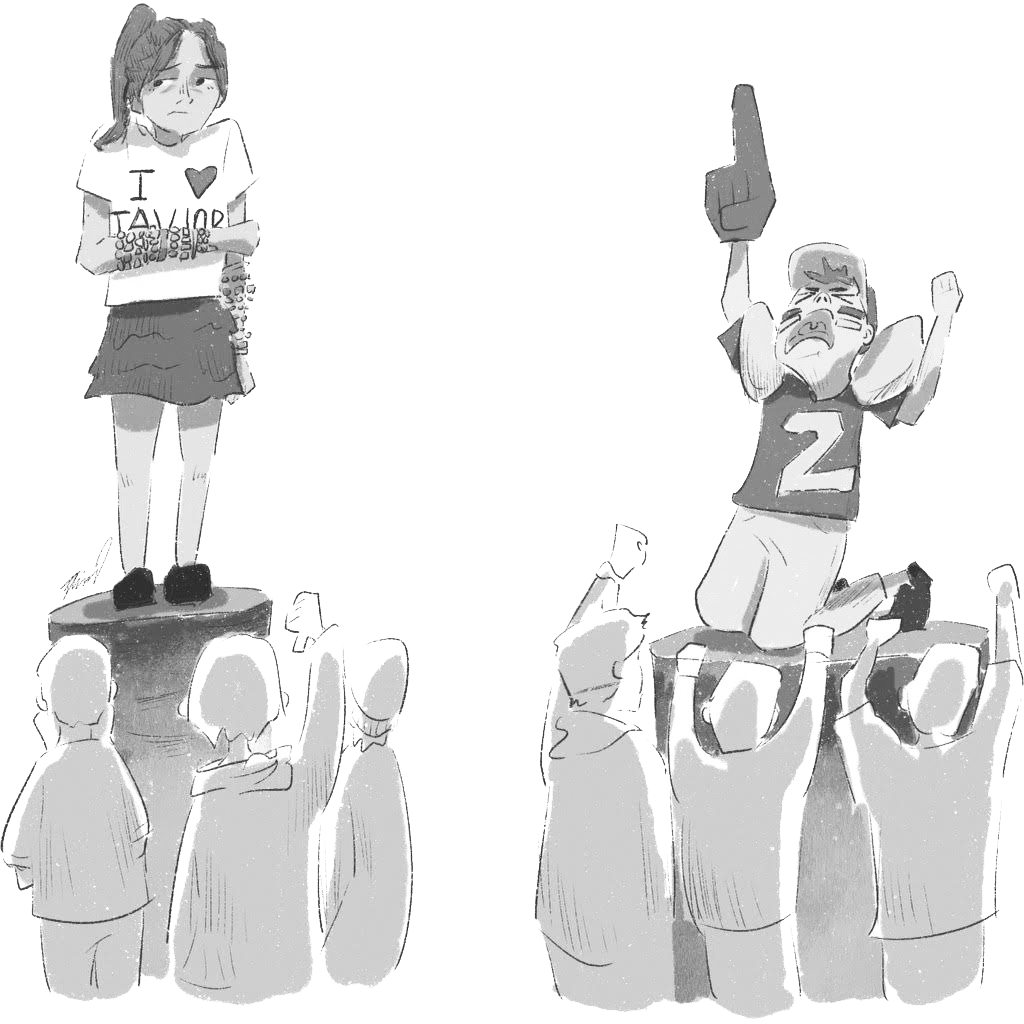Quite frankly, we’ve taken it easy on our President. In the past couple years that President Donald Trump has been active in the political landscape, he has been called many things: incompetent, senile, and treasonous, among other insults that tread the line between fact and exaggeration. But one identification that many are unwilling to ascribe to our President is that of dangerous authoritarian.
At this point, anyone who cares to know is aware of Trump’s repeated threats to democracy. There’s no question about Trump’s disregard for the United States’ storied institutions such as our media or even our Constitution, with his travel ban and attacks on the first amendment as prominent examples. According to Steven Levitsky and Daniel Ziblatt, both professors of government at Harvard University, there are four warning signs that a leader exhibits that determine whether he may be authoritarian: an intrinsic disregard for democracy and its rules, incessant discreditation of their opponents, encouraging violence, and a desire to deny civil rights or censor the media. The good news is that for the last century, the United States hasn’t had a President exhibiting all four of these alarming characteristics and when Richard Nixon raised three out of the four red-flags, he eventually left office as one of the country’s most disgraced leaders. The bad news is that according to Levitsky and Ziblatt, our current President has broken this century-long streak by meeting all four requirements for an authoritarian leader. Now, if we refuse to recognize him as such, especially for fear of exaggeration, we are at risk from the global growth of authoritarian rule.
The first sign, a disregard for democracy’s rules, has been of a hobby of Trump’s from day one. He even holds this disregard when it comes to policies he usually supports, with him most recently commenting on gun control following the Parkland shooting last month, insisting that the United States should “take the guns first, go through due process second.”
The next sign is the discreditation of his opponents. To Trump’s credit, every politician discredits or disagrees with their opponent. However, Trump takes this to a whole new level. Examining his relations with Sen. Ted Cruz, a single official from his own party, we can see Trump’s penchant for discreditation, with attacks on Cruz’s wife, claims that Cruz’s father killed John F. Kennedy, and of course, belittling nicknames for Cruz, most notably Lyin’ Ted. When it came to the general election against Hillary Clinton, Trump not only had juvenile nicknames for his opponent (most notably Crooked Hillary) but also participated in the spread of blatantly false conspiracy theories about Clinton such as the allegations that she and her husband Bill Clinton assassinated members of opposition campaigns. His more current opponent, the free press of the United States, has had its own barrage of insults and discrediting thrust their way as well. There are nicknames like “the failing New York Times” but more poignant—-and alarming—are his constant labeling of any news against him as “fake news.” In just one case, I can think of no clearer example of Trump discrediting an enemy of his, even if those enemies tend to publish objective facts about him. These are just a few examples out of literally hundreds of insults Trump has hurled at his political rivals.
The third sign, encouraging violence, has also been well documented, with two examples among many being Trump advocating for revenge attacks on the families of terrorists or his proclaimed “joke” that the “Second Amendment people” should “take care” of Clinton. In essence, Trump encouraged those who support the 2nd Amendment to kill Clinton, who never even wanted to repeal the 2nd Amendment in the first place, as Trump stated incorrectly.
Finally, the last sign, the willingness to curb civil liberties or the media, is incredibly apparent, with Trump declaring journalists “enemies of the people” and his indications that he’d like to censor negative press. On the front of other civil liberties, Trump has repeatedly advocated for harsher torture tactics and deportation of legal residents.
Oftentimes, a nation’s democratic institution transition to an authoritarian system is thought to be a result of a violent coup, perhaps with an army storming the Capitol building or a figurehead being assassinated. In reality, many dangerous authoritarian leaders work their way up through an established system with populist movements. Current examples of contemporary democratically-elected authoritarian governments are Recep Tayyip Erdogan’s rule in Turkey, Russia under Vladimir Putin, Venezuela under Nicolás Maduro and Xi Jinping in China, all of whom initially worked their way through the ballot box and into a seemingly immovable position of power rife with abuse and corruption. Another thing these leaders have in common is that Trump has expressed, on many occasions, admiration for their authoritarian behavior, with the most recent being his praise for Jinping’s decision to become China’s President-for-life. “I think it’s great,” he told a luncheon for Republican donors at Mar a Lago. “Maybe [the United States will] have to give [President-for-life] a shot someday.”
I am by no means suggesting that the United States is slated for some Orwellian nightmare state under Trump’s rule but rather that complacency or a reluctance to identify Trump as what he is dangerous. A coup is extremely unlikely, especially considering that the United States has a far longer and stronger tradition of democracy than Russia, China, or Venezuela. Still, in these other countries, democracy first fell at the ballot box, and we must thus remain aware and vigilant of Trump’s creep toward authoritarianism.
Short of running for office, there’s not much an everyday person can do on a national scale to directly resist our President’s infringements upon our democracy. Instead, what we can do to preserve our liberty is to start with the basics. In this case, our children are our future and ought to be our priority in saving our democracy. According to a 2017 study by Common Sense Media, only 44 percent of children can differentiate between fake and real news. In an era when this is the case, we need to both educate children on how they can contribute to a change in society. Just because a person is under 18 years of age doesn’t mean they can’t be an engaged part of the political process. There are letters to be written to officials and protests to attend, which parents can encourage. To withstand authoritarian rule, the way we teach government to children must radically change as well, with a greater emphasis being placed at an earlier age and the implications of the system of checks and balances or the importance of the Constitution in general. We must raise a generation who can identify authoritarianism and protect their rights.
Many contend that calling Trump an authoritarian goes too far, that exaggerations hurt the resistance against Trump. However, ruling out the possibility entirely leaves our democracy weak and unguarded. With authoritarian movements gaining traction internationally more and more often in recent years, it’s downright irresponsible to deny Trump’s authoritarian tendencies. Democracy works for the people but in this instance, we must work for democracy and preserve it in the face of rising authoritarianism at home and abroad. The Washington Post’s motto is that “Democracy Dies in Darkness,” and right now it is up to every American who cares about democracy and our age-old institutions to prevent democracy from being extinguished in the face of Trump’s darkness.





